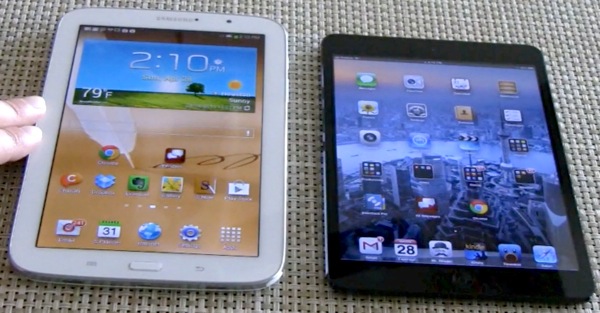The need for cross-platform app parity


Not too long ago apps would appear only on the iPad as it was the biggest selling tablet and thus offered the biggest exposure for developers. Then Android started chipping away at market share and got as big as iOS, if not bigger. Apps originally on iOS were released on Android to take advantage of the big user numbers, and some even appeared on Android first.
Often, the Android version lags behind the iOS app due to the work required for small developer shops to support two platforms. The thought process is apparently to get the Android app out and catch up to the the features in the iOS version over time. While understandable, users are the ones left in the lurch with this approach.
Those who only use the Android version of an app will see the deficiencies and likely drop these apps quickly and move on to the competition.
I use several such apps heavily and it is difficult moving between the two platforms due to the inconsistent user experince. I realize that I am not the typical user as I regularly switch between the iPad and Android tablets, so I am more familiar with the shortcomings of the apps on the Android platform.
This is better for the app developer as I am more likely to stick with using the Android app, hoping it catches up with the features of the iPad app. I suspect most Android users will drop the app forever after trying it and discovering the lack of features, not realizing (nor caring) that the iPad version is much better.
One app that I use heavily is Zite, and the Android version is so much worse than the iPad app the developers should be embarrassed. A quick glance at the two versions displayed side-by-side (above) is all you need to understand how bad the Android version is compared to the one on the iPad. This has been the reality for a long time so it doesn't seem that the folks at Zite intend to bring feature parity to Android, nor care.
The two versions of Zite have a huge lack of parity in features and a very different user experience (UX). While I use Zite on the iPad a lot, I rarely use it on Android because it lacks so much. I suspect those only having an Android tablet may look at Zite once and then drop it, never to return.
The looming cancellation of the Google Reader service pushed me to try a number of alternatives to take up the slack. I settled on Newsblur as the web interface is fantastic and the iPad app is good. Everything would be perfect if the Newsblur app on Android wasn't seriously lacking.
Missing design features in Android make Newsblur hard to use, such as items I've already read are regularly appearing in lists for unread items only, and the lack of multiple columns which would take advantage of the tablet screen, are seriously annoying. These combine to make it impossible to tell where in a long list of articles I am currently located, which makes it hard to use Newsblur on Android.
I am not picking on the developers of these two apps in particular, merely using them as examples. I really like Newblur which is why I paid for the premium service. I also think Zite is one of the best services/apps on iOS.
Some might say that my case is unusual in that I use apps on both platforms, and that's the only reason I know the Android version is seriously lacking. That's true to a point but I believe that those who only use the Android version will see the same deficiencies and likely drop these apps quickly and move on to the competition. Those customers are likely lost forever.
I realize developing and supporting apps is a difficult task, especially for small developer houses. I'm not knocking them at all, I just believe if they can't get all platform versions of the app in feature parity right away, it would be better to hold off releasing all platform versions at the same time. Each app represents the developer and if it presents a bad experience that's how the developer will be viewed (and remembered).